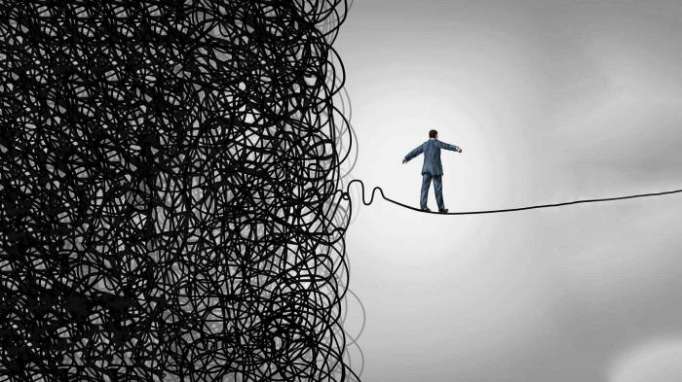With these mess-ups, and dozens more, I have become quite interested in the concept of failure. I am now a dad to two young children and have noticed how easy it is for the fear of failure to take hold. Why put yourself into a position where you might look silly? Why risk the possibility of letting people down? It’s much better to stay in the comfort zone.
The tragedy, of course, is that failure is a pre-requisite for growth. Looking back on my mess-ups, they were tough at the time, but they were also precious learning opportunities. When I wrote the second draft of my first book, it was very nearly readable. And the next time I found myself in a big table tennis match, I had more formidable techniques to cope with the pressure.
My big advantage growing up was my parents. My dad came to the UK from Pakistan to study law, met my Welsh-born mum in London, and stayed for the rest of his life. They were not wealthy (my dad was a civil servant, my mum stacked shelves at Asda before becoming a secretary) but they always emphasised the importance of a “can do” attitude. “Failure is inevitable in life,” dad would say. “It is how you respond to failure that matters most.”

What’s holding me back (Toby Triumph/Wren & Rook)
A study by the University of Bath has shown that the quest for perfectionism has grown over the last 30 years. Young people are anxious about how many friends they have on Facebook, about whether they fit in, about whether their lives are sufficiently wonderful. Is it any wonder they worry about admitting to any imperfection, personal or educational, when they are surrounded by airbrushed images and blemish-free lives in the digital world they occupy?
Young people as young as seven or eight are also worried about exams. They are constantly being tested, judged and labelled. They are told, subtly but often insistently by parents, that the rest of their lives are on the line when they walk into the examination room. Parents mean well, but often we merely add to the pressure, and undermine the joy of education.
What to do? It is worth remembering that the world is changing fast. Technology is transforming our lives at an ever-quicker rate. Think tanks estimate that young people today will do at least 15 different jobs through the course of their lives, many of which haven’t yet been invented.
In such a world, where existing knowledge and know-how is being constantly transcended, key skills will include the capacity to think flexibly and to embrace the unknown. The most important thing of all, however, will be the capacity to bounce back from setbacks, for when we step into the unknown we will invariably make mistakes.
This is why overcoming the fear of failure is so important. Kids are tested too much, and teachers are given too many top down decrees. Nevertheless, some exams are inevitable in any education system worthy of the name. How much healthier if young people approach these as opportunities rather than as threats. How much better if kids were given the tools and techniques to cope with the pressure that is an inevitable part of life? These soft skills are learnable and liberating. But they are rarely taught.
This is why I have written a book for children. I wanted to present the counter-cultural idea that messing up can be productive when framed in the right way. In Silicon Valley, the most successful tech companies “fail fast”. They get prototypes and software into the market early to discover the inevitable weaknesses, the better to improve them. Michael Moritz, perhaps the most famed venture capitalist of the modern age, told me recently: “The tech sector has grasped the power of failure to drive success. We need that mindset in the world beyond tech.”
Children need to understand that it is positive to look silly from time to time. That putting your hand up in class when you don’t understand something is cool. That standing in front of a large room of people is daunting, but hugely liberating, too, because what is the worst that can happen? Even if you fluff your lines, the world continues to turn. Richard Branson and Albert Einstein flunked their exams, but lived remarkable lives.

The tortoise is cute too (Toby Triumph/Wren & Rook)
Above all, kids need to understand that anyone who has achieved anything impressive has gone through multiple stages of imperfection. Success, in that sense, is a journey. Ryan Babineaux and John Krumboltz, two psychologists, have excellent advice for those who are prone to the curse of perfectionism. It involves stating the following mantras: “If I want to be a great musician, I must first play a lot of bad music.” “If I want to become a great tennis player, I must first lose lots of tennis games.” “If I want to become a top commercial architect known for energy-efficient, minimalist designs, I must first design inefficient, clunky buildings.”
That’s not to say failure is always easy, or comfortable. But creativity requires that dash of risk taking. As the world becomes ever more dynamic and complex, the capacity to adapt will become ever more precious. Indeed, I would argue that this will be the most critical trait in the coming decades, for societies as much as for individuals.
The Independent
More about: failure
















































